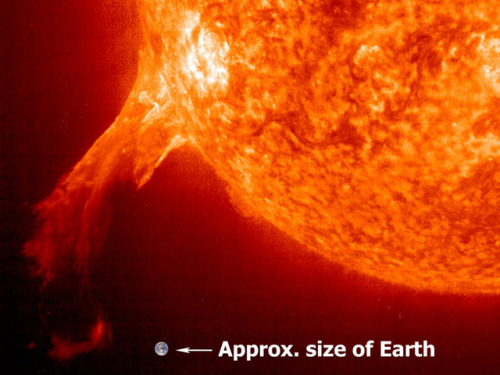It Takes The American Beaver 24 Hours To Learn To Swim After Being Born. Learn More About Beavers And
It takes the American beaver 24 hours to learn to swim after being born. Learn more about beavers and how they shape the world around them.
More Posts from Knowledgeiskeyuk and Others
Outward Bound: Interplanetary Trade


Nasa is to host a major press conference on a “discovery beyond our solar system”.
The event will see the revelation of major information about exoplanets, or planets that orbit stars other than our sun, according to a release. It made no further mention of the details of what would be revealed.
Exoplanets are the major hope for life elsewhere in the universe, since many have been found that resemble our own Earth and could have the building blocks of life. More of them are being discovered all the time.
The event will take place on 22 February at 1pm New York time, it said. It will be streamed live on Nasa’s television station and on its website.
Attending the press conference will be astronomers and planetary scientists from across the world.
Nasa said that the public will be able to ask questions using the hashtag #AskNasa during the conference. The agency will also hold a Reddit AMA, or ask me anything, session straight after the briefing.
Ten near-Earth size planets in habitable zone of their star
NASA’s Kepler space telescope team has released a mission catalog of planet candidates that introduces 219 new planet candidates, 10 of which are near-Earth size and orbiting in their star’s habitable zone, which is the range of distance from a star where liquid water could pool on the surface of a rocky planet.

This is the most comprehensive and detailed catalog release of candidate exoplanets, which are planets outside our solar system, from Kepler’s first four years of data. It’s also the final catalog from the spacecraft’s view of the patch of sky in the Cygnus constellation.
With the release of this catalog, derived from data publicly available on the NASA Exoplanet Archive, there are now 4,034 planet candidates identified by Kepler. Of which, 2,335 have been verified as exoplanets. Of roughly 50 near-Earth size habitable zone candidates detected by Kepler, more than 30 have been verified.
Keep reading

January 4th is the birthday of the scientist Sir Isaac Newton, widely known for developing the laws of gravity and planter relations. Newton first began to think about these concepts when he witnessed an apple falling from a tree – though the apple did not hit him on the head as many believe. #ThursdayThoughts #NationalTriviaDay

Jeff Bezos: “We Have to Go to Space to Save Earth”

An Erupting Solar Prominence from SOHO
Credit: SOHO-EIT Consortium, ESA, NASA

January is national Braille literacy month. Did you know that Braille actually started out as military code developed so the French soldiers could read important messages without light? In fact, the code was known as night writing. It was the schoolboy Louis Braille who developed the more streamlined version of the alphabet used today. #WorldBrailleDay

A new study from Northwestern University suggests a little stress can actually have a positive effect on cellular health.
As humans grow older, their cellular machinery responsible for carrying out quality control on the protein-folding process begins to fail. The damaged proteins that are produced as a result are responsible for conditions like Parkinson’s disease, Alzheimer’s disease, and amyotrophic lateral sclerosis. Read more here.
"Develop a passion for learning. If you do, you will never cease to grow." Anthony J. D'Angelo. Visit our website at https://knowledgeiskey.co.uk
66 posts

